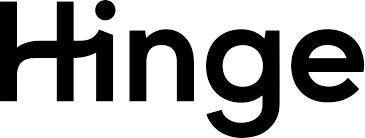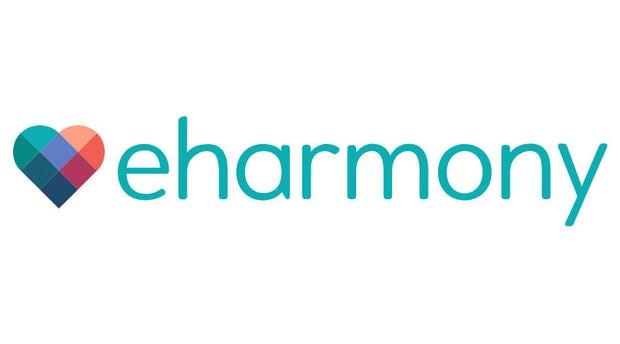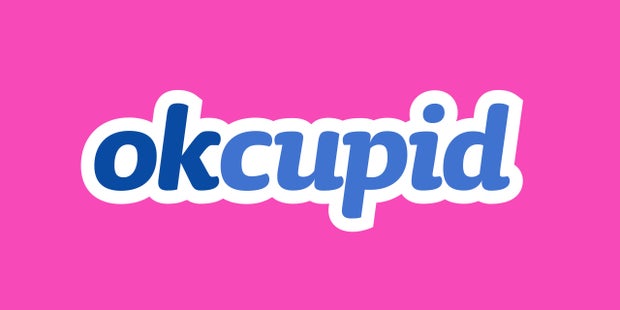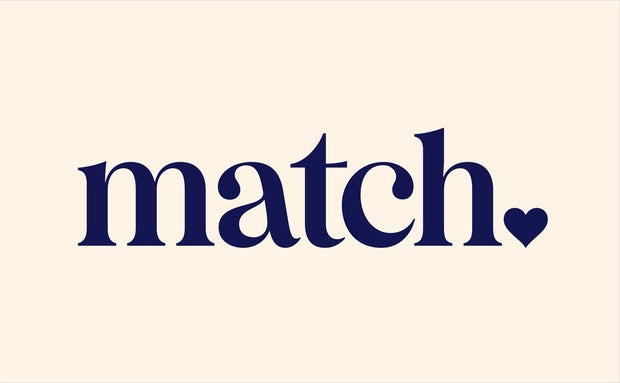CBS News
The 5 best dating apps in 2024

Dating? In this economy? If you’re hesitant to put yourself out there, you’re not alone. One random survey of 2,000 Americans conducted in December 2023 found that some adults — 37% of those surveyed — are going on fewer dates due to things like high expenses. That might be why online dating apps like the easy and straightforward Dating.com are so popular these days.
Dating apps make it easy to meet new people and make meaningful connections without all the stress, time, and money that can come with bad matches, blind dates, or meeting people at spendy social functions. The best dating apps are ones that eventually get deleted off your phone altogether — but before you get to your “happily ever after,” you have to find the right app for you.
And with so many dating apps to choose from (do you steer clear of paid apps or look for premium subscriptions with extra features? Do you care who makes the first move? Are you looking for certain shared interests or beliefs?), that can feel like a challenge. To help you make that first move confidently, we outline the top dating apps of 2024 and why you should sign up below.
What is the best dating app in 2024?
If you’re ready to put your best foot forward into the world of online dating, these are the apps you should consider putting on your phone.
- Best overall dating app: Hinge
- Best for women who want to make the first move: Bumble
- Best for long-term dating: eHarmony
- Best free dating app: OKCupid
- Best video dating: Match
From classic mainstays to newer dating apps, here is everything you need to know about the top five dating apps of 2024.
Best modern dating app overall: Hinge
Hinge
When it comes to finding long-term (or short-term, live your life) love, Hinge has really climbed to the top of our list in recent years. Hinge doesn’t disclose how many people use the mobile app to find connections, but according to one 2022 survey, 39% of adults aged 18 to 29 used it at least once.
Hinge stands out from the crowd by being more than just a swipe-based app. Users reach out using likes and comments instead, which can lead to more meaningful connections since this forces users to be more deliberate and thoughtful when sending someone a like.
Hinge is free to use, but users can unlock additional features, such as unlimited likes, with a premium account, which costs between $33 and $50 per month.
Pros:
- Detailed profile options that let users stand out such as personal details and dating intention information.
- An award-winning algorithm (Nobel-prize-winning Gale Shapley algorithm) is used to help users find potential matches.
- Voice prompts, video prompts, and prompt polls give users plenty of room to express themselves.
- Likes and comments can lead to more meaningful connections than other swipe-based mobile apps.
Cons:
- Features like weekly “roses” (“super likes” by another name) can feel a bit tacky.
- Some potential matches are walled off as “standout profiles” and can only be reached with a rose, which can feel like a limiting factor for some users.
- Premium accounts (Hinge Plus and Hinge X) are expensive.
Best for women making the first move: Bumble
Bumble
If a traditional swipe-based app is more your speed, we recommend adding Bumble to your phone. This dating app is all about shaking things up a bit when it comes to what people expect from a dating app.
One way Bumble goes about this is by offering more than just romantic connections. In addition to Bumble date, there are two other modes for interested users: Bumble BFF for making friendships and Bumble bizz for networking with potential professional connections.
The other standout feature of Bumble is the way communication works, particularly for people looking for heterosexual romance. Women are required to make the first move, which takes away some of the concern women and female-presenting people may have on other dating apps, where it’s possible for one to be bombarded with unsolicited messages.
Bumble is free to use, but users also have the option of paying for Bumble premium ($35) and premium plus ($50) subscriptions for perks like unlimited swipes, a backtrack option, and access to other trending users (a premium plus exclusive).
Pros:
- The “ladies first” approach to matchmaking can be refreshing for women looking for heterosexual romance who want the ability to pick and choose who they talk to.
- Bumble has full accessibility for members of the LGBTQIA+ community, where anyone can make the first move.
- Additional features like audio and video calls can help people get to know one another more easily in those early days and weeks.
Cons:
- Matches are lost if a message isn’t sent within the first 24 hours of connecting with someone.
- Extra features like unlimited likes come with a hefty price point thanks to Bumble’s not-terribly-budget-friendly premium plans.
Best for long-term dating: eHarmony
eHarmony
Going strong since its launch in 2000, eHarmony is a mainstay in the world of dating apps thanks to its comprehensive approach to bringing people together.
If you don’t like filling out a detailed profile, maybe check out other mobile apps on our list first, because eHarmony starts users off with a compatibility quiz full of 80 questions. These help clarify details such as user likes and dislikes, communication styles, and what an ideal match might look like.
Users are then scored on their quiz results, with these numbers determining other potential matches. Find someone with a high enough compatibility score and you may be in luck.
A basic eHarmony membership is free, but premium memberships are available: premium light six-month plan ($66 per month), premium plus 12-month plan ($46 per month), and premium extra 24-month plan ($36 per month). Since you’re paying for at least six months of premium features at a time, we recommend getting started with a free membership before determining whether a premium account is right for you.
Pros:
- eHarmony’s detailed approach to matchmaking, including the 80-question compatibility quiz and scoring system, can be great for those who know what they want and are ready for long-term commitment.
- According to eHarmony, users find love on its app every 14 minutes, which at the very least indicates users will have options once they sign up.
Cons:
- Pricing information can be confusing. Users aren’t informed about eHarmony’s tiered premium plan setup until after making an account and completing the compatibility quiz.
- Some notable features, like being able to see all of another user’s photos, are locked behind the premium paywall.
- Canceling your eHarmony account could be easier — users have to reach out to customer care from the eHarmony website to start the process.
Best free dating app: OKCupid
OKCupid
If you want a quality mobile app that doesn’t cost an arm and a leg to use all of the best features, we recommend OKCupid. Users can create an account, upload photos, and send messages to potential matches with a free account (other users will have to swipe right on your profile as well to read your message, however).
Offering users a match score and questionnaire similar to eHarmony’s compatibility quiz (although less time-consuming), OKCupid uses user info to find potential matches. OKCupid is also a great dating app for inclusivity: the mobile app lets users choose from 13 different sexual orientations and 22 gender identities.
OKCupid has a free tier as well as several paid subscriptions: OKCupid basic ($30 per month), premium ($40 per month), and incognito ($20 per month), the last of which lets you stay active while only showing up for other users who you’ve liked or messaged.
Pros:
- Getting started with a free account is relatively quick and easy.
- User-friendly mobile app and website.
- A great place for gender nonconforming people or those with sexual orientations that fall outside of the norm for other, more traditional dating apps
Cons:
- Potential matches need to swipe right on your profile as well in order to read your messages.
- Subscriptions are automatically renewed unless canceled manually.
Best video dating: Match
Match
One of the oldest dating sites around, Match has been bringing people together online since its launch in 1995. Setting up an account is super easy: no long quizzes or requirements to fill out every prompt before you can start matching with people (you can come back to add more prompts on your own time).
Match also offers a few features that make connecting with new people online easier than ever — namely, a video chat feature that becomes available once you connect with someone. Users also have access to Match-approved in-person events like hikes, food tours, and speed dating get-togethers.
Like all of the best dating apps on our list, Match offers a free plan as well as two paid subscriptions: standard ($35 per month) and premium ($40 per month).
Pros:
- Unlimited likes for free users.
- Users have the right to cancel immediately at any time with no hassle.
Cons:
- Profiles may have limited or incomplete info since Match doesn’t require you to fill everything out before matching with people.
CBS News
What is Project 2025? What to know about the conservative blueprint for a second Trump administration
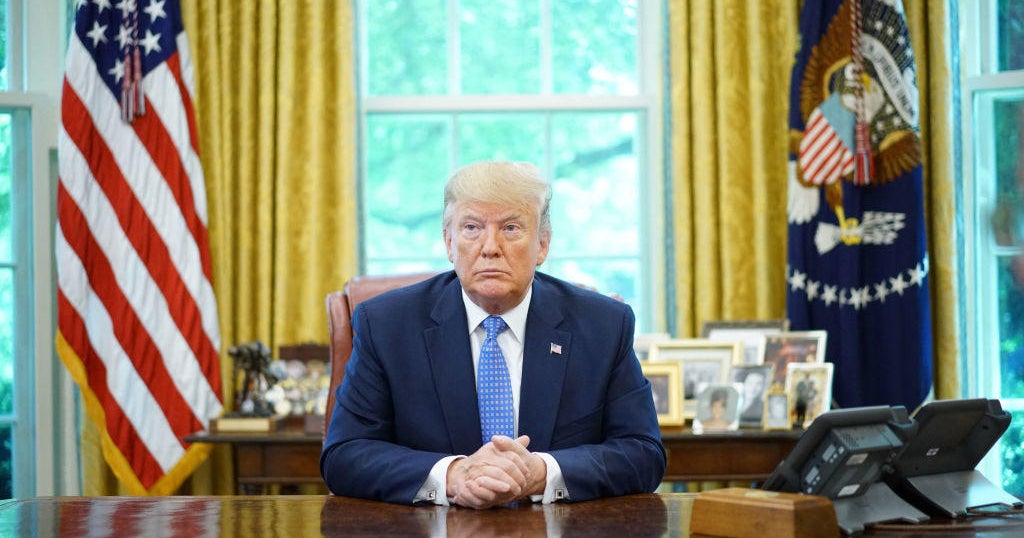
Washington — Voters in recent weeks have begun to hear the name “Project 2025” invoked more and more by President Biden and Democrats, as they seek to sound the alarm about what could be in store if former President Donald Trump wins a second term in the White House.
Overseen by the conservative Heritage Foundation, the multi-pronged initiative includes a detailed blueprint for the next Republican president to usher in a sweeping overhaul of the executive branch.
Trump and his campaign have worked to distance themselves from Project 2025, with the former president going so far as to call some of the proposals “abysmal.” But Democrats have continued to tie the transition project to Trump, especially as they find themselves mired in their own controversy over whether Mr. Biden should withdraw from the 2024 presidential contest following his startling debate performance last month.
Here is what to know about Project 2025:
What is Project 2025?
Project 2025 is a proposed presidential transition project that is composed of four pillars: a policy guide for the next presidential administration; a LinkedIn-style database of personnel who could serve in the next administration; training for that pool of candidates dubbed the “Presidential Administration Academy;” and a playbook of actions to be taken within the first 180 days in office.
It is led by two former Trump administration officials: Paul Dans, who was chief of staff at the Office of Personnel Management and serves as director of the project, and Spencer Chretien, former special assistant to Trump and now the project’s associate director.
Project 2025 is spearheaded by the Heritage Foundation, but includes an advisory board consisting of more than 100 conservative groups.
Much of the focus on — and criticism of — Project 2025 involves its first pillar, the nearly 900-page policy book that lays out an overhaul of the federal government. Called “Mandate for Leadership 2025: The Conservative Promise,” the book builds on a “Mandate for Leadership” first published in January 1981, which sought to serve as a roadmap for Ronald Reagan’s incoming administration.
The recommendations outlined in the sprawling plan reach every corner of the executive branch, from the Executive Office of the President to the Department of Homeland Security to the little-known Export-Import Bank.
MANDEL NGAN/AFP via Getty Images
The Heritage Foundation also created a “Mandate for Leadership” in 2015 ahead of Trump’s first term. Two years into his presidency, it touted that Trump had instituted 64% of its policy recommendations, ranging from leaving the Paris Climate Accords, increasing military spending, and increasing off-shore drilling and developing federal lands. In July 2020, the Heritage Foundation gave its updated version of the book to then-White House Chief of Staff Mark Meadows.
The authors of many chapters are familiar names from the Trump administration, such as Russ Vought, who led the Office of Management and Budget; former acting Defense Secretary Chris Miller; and Roger Severino, who was director of the Office of Civil Rights at the Department of Health and Human Services.
Vought is the policy director for the 2024 Republican National Committee’s platform committee, which released its proposed platform on Monday.
John McEntee, former director of the White House Presidential Personnel Office under Trump, is a senior advisor to the Heritage Foundation, and said that the group will “integrate a lot of our work” with the Trump campaign when the official transition efforts are announced in the next few months.
Candidates interested in applying for the Heritage Foundation’s “Presidential Personnel Database” are vetted on a number of political stances, such as whether they agree or disagree with statements like “life has a right to legal protection from conception to natural death,” and “the President should be able to advance his/her agenda through the bureaucracy without hindrance from unelected federal officials.”
The contributions from ex-Trump administration officials have led its critics to tie Project 2025 to his reelection campaign, though the former president has attempted to distance himself from the initiative.
What’s in the Project 2025 policy agenda?
Some of the policies in the Project 2025 agenda have been discussed by Republicans for years or pushed by Trump himself: less federal intervention in education and more support for school choice; work requirements for able-bodied, childless adults on food stamps; and a secure border with increased enforcement of immigration laws, mass deportations and construction of a border wall.
But others have come under scrutiny in part because of the current political landscape.
Abortion and social issues
In recommendations for the Department of Health and Human Services, the agenda calls for the Food and Drug Administration to reverse its 24-year-old approval of the widely used abortion pill mifepristone. Other proposed actions targeting medication abortion include reinstating more stringent rules for mifepristone’s use, which would permit it to be taken up to seven weeks into a pregnancy, instead of the current 10 weeks, and requiring it to be dispensed in-person instead of through the mail.
The Alliance Defending Freedom, a conservative legal group that is on the Project 2025 advisory board, was involved in a legal challenge to mifepristone’s 2000 approval and more recent actions from the FDA that made it easier to obtain. But the Supreme Court rejected the case brought by a group of anti-abortion rights doctors and medical associations on procedural grounds.
The policy book also recommends the Justice Department enforce the Comstock Act against providers and distributors of abortion pills. That 1873 law prohibits drugs, medicines or instruments used in abortions from being sent through the mail.
Erin Hooley/Chicago Tribune/Tribune News Service via Getty Images
Now that the Supreme Court has overturned Roe v. Wade, the volume states that the Justice Department “in the next conservative administration should therefore announce its intent to enforce federal law against providers and distributors of such pills.”
The guide recommends the next secretary of Health and Human Services get rid of the Reproductive Healthcare Access Task Force established by the Biden administration before Roe’s reversal and create a “pro-life task force to ensure that all of the department’s divisions seek to use their authority to promote the life and health of women and their unborn children.”
In a section titled “The Family Agenda,” the proposal recommends the Health and Human Services chief “proudly state that men and women are biological realities,” and that “married men and women are the ideal, natural family structure because all children have a right to be raised by the men and women who conceived them.”
Further, a program within the Health and Human Services Department should “maintain a biblically based, social science-reinforced definition of marriage and family.”
During his first four years in office, Trump banned transgender people from serving in the military. Mr. Biden reversed that policy, but the Project 2025 policy book calls for the ban to be reinstated.
Targeting federal agencies, employees and policies
The agenda takes aim at longstanding federal agencies, like the National Oceanic and Atmospheric Administration, or NOAA. The agency is a component of the Commerce Department and the policy guide calls for it to be downsized.
NOAA’s six offices, including the National Weather Service and National Marine Fisheries Service, “form a colossal operation that has become one of the main drivers of the climate change alarm industry and, as such, is harmful to future U.S. prosperity,” the guide states.
The Department of Homeland Security, established in 2002, should be dismantled and its agencies either combined with others, or moved under the purview of other departments altogether, the policy book states. For example, immigration-related entities from the Departments of Homeland Security, Justice and Health and Human Services should form a standalone, Cabinet-level border and immigration agency staffed by more than 100,000 employees, according to the agenda.
Getty Images
If the policy recommendations are implemented, another federal agency that could come under the knife by the next administration, with action from Congress, is the Consumer Financial Protection Bureau.
The agenda seeks to bring a push by conservatives to target diversity, equity and inclusion, or DEI, initiatives in higher education to the executive branch by wiping away a slew of DEI-related positions, policies and programs and calling for the elimination of funding for partners that promote DEI practices.
It states that U.S. Agency for International Development staff and grantees that “engage in ideological agitation on behalf of the DEI agenda” should be terminated. At the Treasury Department, the guide says the next administration should “treat the participation in any critical race theory or DEI initiative without objecting on constitutional or moral grounds, as per se grounds for termination of employment.”
The Project 2025 policy book also takes aim at more innocuous functions of government. It calls for the next presidential administration to eliminate or reform the dietary guidelines that have been published by the Department of Agriculture for more than 40 years, which the authors claim have been “infiltrated” by issues like climate change and sustainability.
Immigration
Trump made immigration a cornerstone of his last two presidential runs and has continued to hammer the issue during his 2024 campaign. Project 2025’s agenda not only recommends finishing the wall along the U.S.-Mexico border, but urges the next administration to “take a creative and aggressive approach” to responding to drug cartels at the border. This approach includes using active-duty military personnel and the National Guard to help with arrest operations along the southern border.
A memo from Immigration and Customs Enforcement that prohibits enforcement actions from taking place at “sensitive” places like schools, playgrounds and churches should be rolled back, the policy guide states.
When the Homeland Security secretary determines there is an “actual or anticipated mass migration of aliens” that presents “urgent circumstances” warranting a federal response, the agenda says the secretary can make rules and regulations, including through their expulsion, for as long as necessary. These rules, the guide states, aren’t subject to the Administration Procedure Act, which governs the agency rule-making process.
What do Trump and his advisers say about Project 2025?
In a post to his social media platform Friday, Trump wrote, “I know nothing about Project 2025. I have no idea who is behind it. I disagree with some of the things they’re saying and some of the things they’re saying are absolutely ridiculous and abysmal. Anything they do, I wish them luck, but I have nothing to do with them.”
Trump’s pushback to the initiative came after Heritage Foundation President Kevin Roberts said in a podcast interview that the nation is “in the process of the second American Revolution, which will remain bloodless if the left allows it to be.”
But even before Roberts’ comments during “The War Room” podcast — typically hosted by conservative commentator Steve Bannon, who reported to federal prison to begin serving a four-month sentence last week — Trump’s top campaign advisers have stressed that Project 2025 has no official ties to his reelection bid.
Susie Wiles and Chris LaCivita, senior advisers to the Trump campaign, said in a November statement that 2024 policy announcements will be made by Trump or his campaign team.
“Any personnel lists, policy agendas, or government plans published anywhere are merely suggestions,” they said.
While the efforts by outside organizations are “appreciated,” Wiles and LaCivita said, “none of these groups or individuals speak for President Trump or his campaign.”
In response to Trump’s post last week, Project 2025 reiterated that it was separate from the Trump campaign.
“As we’ve been saying for more than two years now, Project 2025 does not speak for any candidate or campaign. We are a coalition of more than 110 conservative groups advocating policy & personnel recommendations for the next conservative president. But it is ultimately up to that president, who we believe will be President Trump, to decide which recommendations to implement,” a statement on the project’s X account said.
What do Democrats say?
Despite their attempts to keep some distance from Project 2025, Democrats continue to connect Trump with the transition effort. The Biden-Harris campaign frequently posts about the project on X, tying it to a second Trump term.
Mr. Biden himself accused his Republican opponent of lying about his connections to the Project 2025 agenda, saying in a statement that the agenda was written for Trump and “should scare every single American.”
Congressional Democrats have also begun pivoting to Project 2025 when asked in interviews about Mr. Biden’s fitness for a second term following his lackluster showing at the June 27 debate, the first in which he went head-to-head with Trump.
“Trump is all about Project 2025,” Pennsylvania Sen. John Fetterman told CNN on Monday. “I mean, that’s what we really should be voting on right now. It’s like, do we want the kind of president that is all about Project ’25?”
In a statement reiterating her support for Mr. Biden, Rep. Frederica Wilson of Florida called Project 2025 “MAGA Republicans’ draconian 920-page plan to end U.S. democracy, give handouts to the wealthy and strip Americans of their freedoms.”
What are Republicans saying about Project 2025?
Two GOP senators under consideration to serve as Trump’s running mate sought to put space between the White House hopeful and Project 2025, casting it as merely the product of a think tank that puts forth ideas.
“It’s the work of a think tank, of a center-right think tank, and that’s what think tanks do,” Florida Sen. Marco Rubio told CNN’s “State of the Union” on Sunday.
He said Trump’s message to voters focuses on “restoring common sense, working-class values, and making our decisions on the basis of that.”
Ohio Sen. J.D. Vance raised a similar sentiment in an interview with NBC’s “Meet the Press,” saying organizations will have good ideas and bad ideas.
“It’s a 900-page document,” he said Sunday. “I guarantee there are things that Trump likes and dislikes about that 900-page document. But he is the person who will determine the agenda of the next administration.”
CBS News
Questions on neurologist’s White House visits spark heated exchange over Biden’s health

Watch CBS News
Be the first to know
Get browser notifications for breaking news, live events, and exclusive reporting.
CBS News
Russian playwright, theater director sentenced to prison on terrorism charges

A Russian court on Monday convicted a theater director and a playwright of terrorism charges and sentenced them to six years each in prison, the latest in an unrelenting crackdown on dissent across the country that has reached new heights since Moscow sent troops into Ukraine.
Zhenya Berkovich, a prominent independent theater director, and playwright Svetlana Petriychuk have already been in jail for over a year awaiting trial.
Authorities claimed their play “Finist, the Brave Falcon” justifies terrorism, which is a criminal offense in Russia punishable by up to seven years in prison. Berkovich and Petriychuk have both repeatedly rejected the accusations against them.
In one hearing, Berkovich told the court that she staged the play in order to prevent terrorism, and Petriychuk echoed her sentiment, saying that she wrote it in order to prevent events like those depicted in the play.
The women’s lawyers pointed out at court hearings before the trial that the play was supported by the Russian Culture Ministry and won the Golden Mask award, Russia’s most prestigious national theater award. In 2019, the play was read to inmates of a women’s prison in Siberia, and Russia’s state penitentiary service praised it on its website, Petriychuk’s lawyer said.
Alexander Zemlianichenko / AP
The case against Berkovich and Petriychuk elicited outrage in Russia. An open letter in support of the two artists, started by the independent Novaya Gazeta newspaper, was signed by more than 16,000 people since their arrest.
The play, the letter argued, “carries an absolutely clear anti-terrorist sentiment.”
Dozens of Russian actors, directors and journalists also signed affidavits urging the court to release the two from custody pending investigation and trial.
Immediately after Russia launched its full-scale invasion of Ukraine, the Kremlin unleashed a sweeping campaign of repression, unparalleled since the Soviet era. It has effectively criminalized any criticism of the war, with the authorities targeting not only prominent opposition figures who eventually received draconian prison terms, but anyone who spoke out against it, publicly or otherwise.
Pressure mounted on critical artists in Russia, too. Actors and directors were fired from state-run theaters, and musicians were blacklisted from performing in the country. Some were slapped with the label “foreign agent,” which carries additional government scrutiny and strong negative connotations. Many have left Russia.
Berkovich, who is raising two adopted daughters, refused to leave Russia and continued working with her independent theater production in Moscow, called Soso’s Daughters. Shortly after the start of the war in Ukraine, she staged an anti-war picket and was jailed for 11 days.


